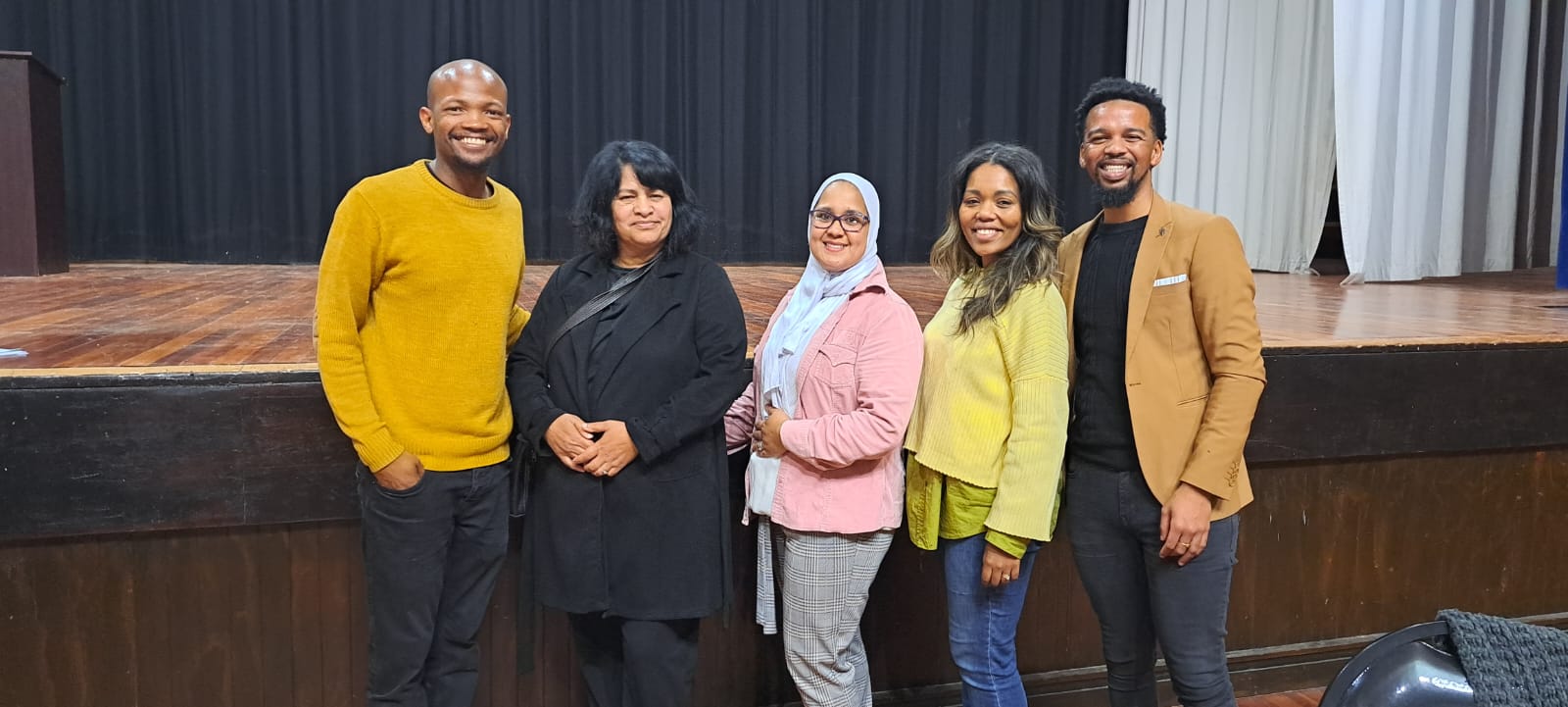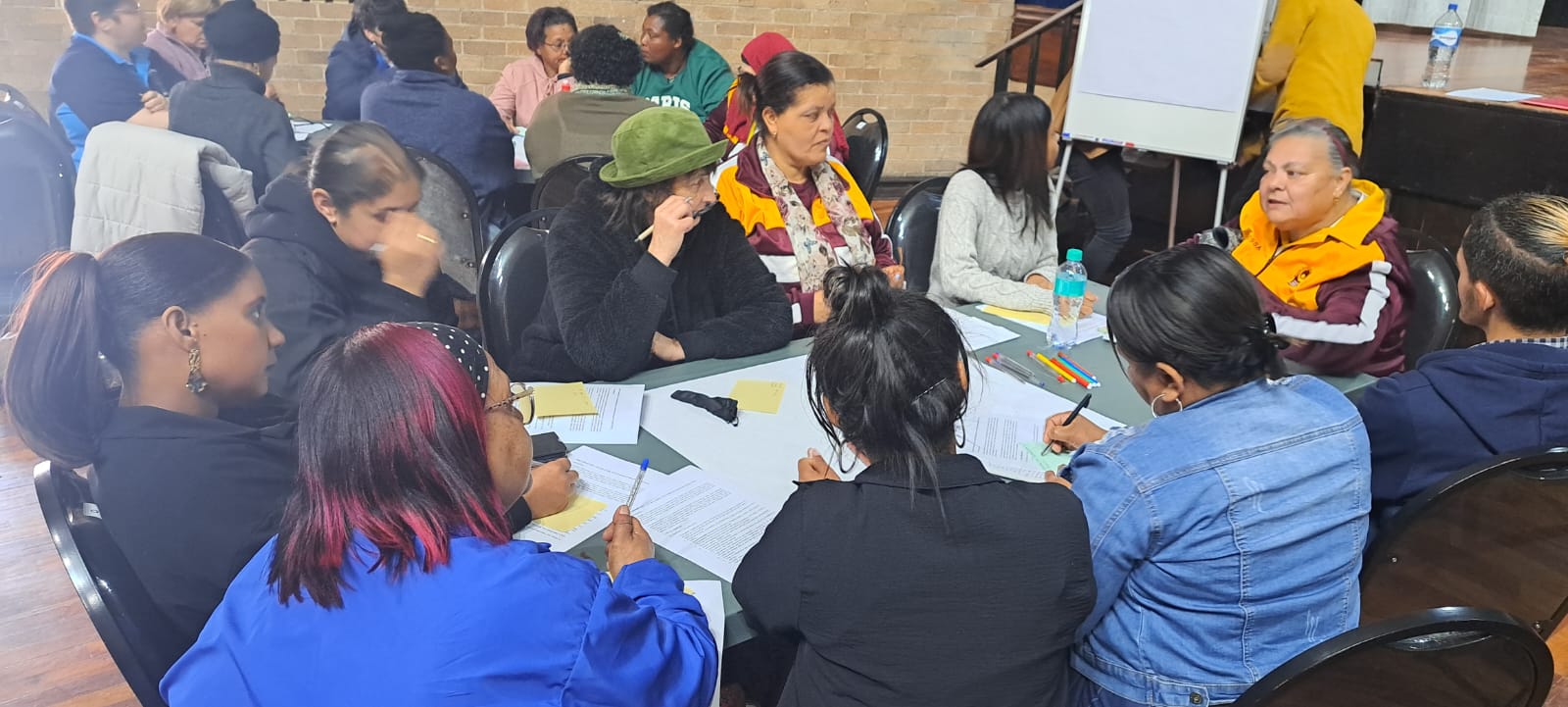Worcester Technical Task Team Policy Victory in 2025
12 Aug 2025
The Worcester Technical Task Team has achieved a significant policy victory, culminating in the development and near completion of the Breede Valley Municipality (BVM) Early Childhood Development (ECD) Policy in the Western Cape. This initiative, spearheaded by the Worcester technical task team with support from Real Reform, represents a crucial step in strengthening the local ECD ecosystem and lays a foundational blueprint for all stakeholders involved. There were various stakeholders involved such as ECD forum leads, Department of Health (DoH), Department of Social Development (DSD), Department of Education (DoE) and municipal departments.

Real Reform for ECD is a campaign launched in 2020 in response to a flawed Children’s Amendment Bill aiming to strengthen South Africa’s ECD legal framework. This campaign is a collective initiative coordinated by ECD practitioners and civil society organisations, with support from various partners. Real Reform for ECD shows how community-driven, well-organised advocacy can bring about meaningful legislative change to benefit young children and ECD providers nationwide.
Breede Valley Municipality Early Childhood Development Policy (ECD)
The development of the Breede Valley Municipality ECD Policy was a collaborative and extensive effort. It was driven by a need to address challenges and issues identified by various departments and stakeholders. A pivotal aspect of this process was the direct engagement with caregivers, communities and ECD practitioners.
Community engagements were held in Worcester, Rawsonville, Touwsrivier, and De Doorns. These sessions aimed to understand the community's perspective on ECD, what was happening locally, and what they wished to see improve. The community engagements saw a "fair amount" of community people participating, demonstrating significant interest and care for ECD. For instance, the Worcester/Rawsonville engagement alone had 62 attendees, showcasing a strong turnout.
The information and engagement gathered from these community sessions were crucial; they provided direction for the policy and were consolidated by Real Reforms Local Municipal Advocacy, Tsepo Mantje, into a final draft now with the municipality. Real Reform for ECD brings together ECD practitioners, civil society, non-governmental organizations and local governments to improve early childhood development policy and practice. It helps ensure that the experiences of those working with young children are reflected or considered during decision making. By supporting community input, engagement and practical community solutions, Real Reform has contributed more inclusive and stronger early childhood services.
What is a Technical Task Team?
A Technical Task Team, as demonstrated by Worcester’s multi-year reform, involves various individuals responsible for steering and driving a specific agenda, such as the Early Childhood Development (ECD) policy. In Worcester, a technical task team is described as a ‘force’ behind the policy, providing the necessary political weight to advance the ECD agenda within the Breede Valley Municipality. There are different characteristics of a technical task team, such as:
Composition: This includes stakeholders/representatives from relevant government departments whose knowledge and expertise are essential when addressing policy issues and challenges. For example, in Worcester, this involved representatives from the Department of Social Development, Breede Valley Municipality personnel, SAPS, and the fire department.
Role in Policy Development: The technical task team brings its collective weight to ensure that necessary actions are taken from the municipal side. For instance, the team was instrumental in creating Worcester's Breede Valley ECD policy. It leverages departmental knowledge to inform processes, such as identifying the right people to consult.
Engagement Approach: The effectiveness of a technical task team relies on consistent and reliable engagement over time, rather than just being a once-off meeting. This sustained effort is crucial for building buy-in and seeing the reform process through to an "incredible output. The formulation and adaptation of the Breede Valley Municipality ECD Policy did not happen within a year. Still, it resulted from nearly four years of continuous engagement and collaboration among different stakeholders.
.jpeg)
Key Partnerships and Endorsements
The success of the Breede Valley Municipality (BVM) Early Childhood Development (ECD) policy initiative is primarily due to strong partnerships and solid political support. A major contributor was the close collaboration with the Breede Valley Municipality itself, especially with Mr. Simphiwe Mayeki, the community services manager, who fully supported the community engagement process, Mr Luwatlin Magalas from the same department also accompanied the team during all engagements, ensuring smooth coordination. The policy received strong endorsement when presented to all ward councillors, with the municipal speaker and the mayor attending. This backing is expected to make passing the policy through the council much easier. The technical task team played a vital role, leveraging their expertise and influence to involve various departments. The mayor's involvement, and municipal speaker, shows how crucial political influence can be in advancing the ECD agenda.
The BVM ECD Policy proposes practical solutions to common challenges faced by ECD centres and practitioners in the municipality. The policy suggests extending lease agreements for ECD structures from the current three-year term to five years to match the lengthy registration process already done in other municipalities. For home-based centres, especially in smaller towns like Touwsrivier and De Doorns, the policy considers whether the city can waive utility costs like electricity and water, as these are often part of household bills.
Another key feature is the creation of an ECD desk within the municipality. This desk would be a single point of contact to assist practitioners with tasks like zoning and building permits, making it easier to navigate administrative processes and avoid unnecessary delays.
Jo Anne Gordon, the ECD coordinator for Worcester, made the following comment about the success of the technical task team in the last year:
“The technical task team is a great example of how well collaboration works and how much we need it. The ECD policy has been years in the making and would have been impossible to complete and submit to the BVM municipality without the collective knowledge and power of the task team. The value of the task team lies in the fact that each department carries a different strength and responsibility, and ultimately brings that to the collective table”

Thoughts from the MEL Desk
The Early Childhood Development (ECD) Policy in Breede Valley shows how real change happens when people work together over time. This success reflects the Do More Foundation’s Theory of Change (TOC), which focuses on listening to communities, building partnerships, and sharing responsibility to support young children. Over almost four years, the Worcester Technical Task Team worked closely with the municipality, local departments, and the community. This consistent teamwork helped build trust and ensured everyone focused on the same goal. One key part of this process was listening to the voices of parents, caregivers, and ECD practitioners. Community meetings were held in Worcester, Rawsonville, Touwsrivier, and De Doorns. The ideas shared in these meetings helped shape the policy directly. This shows the power of including those closest to the issue, something the TOC strongly supports.
Jo Ann Gordon, the Worcester ECD coordinator, pointed out that success comes from partnerships. Real progress happened when the municipality, community, and ECD workers came together. This matches the belief that change happens best when everyone cooperates and takes shared responsibility.
Political support also played a significant role. The involvement of ward councillors, the speaker, and the mayor helped move the policy smoothly through the council. This shows how important it is to have support from local leaders. The policy offers real solutions, like longer lease terms for centres, possible support with utility bills, and a new help desk to assist ECD practitioners with administrative tasks. These practical changes respond to what people asked for.
What Kind of Change Is This
This work shows different types of change:
- Scaling Deep: It focused on changing relationships, values, and ways of working together. The team built trust and altered how the municipality supports ECD.
- Scaling Out: Other towns or municipalities can use The Breede Valley process as a model.
- Scaling Up: Because political leaders are involved, this work could lead to bigger systems or policy changes in the future.
In conclusion, this is a strong example of how real change takes time, teamwork, and trust. It also shows how a community can unite with the government to create something that supports young children meaningfully and lastingly.
By: Fanelesibonge Msimango
MEL Intern